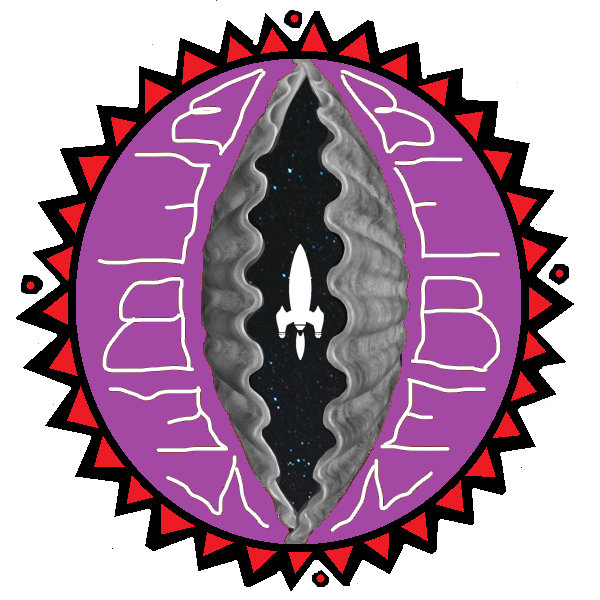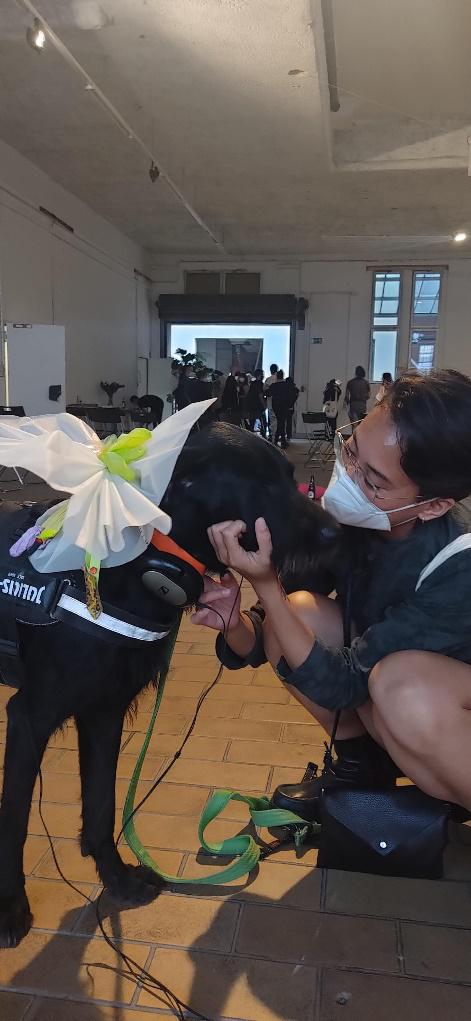Spaceship Beben
Promona Sengupta

Spaceship Beben is a deep space exploration vehicle that flies through the universe in search of utopian FLINTAQ+ timelines. We engage in mutual aid, collaborative research and artistic practice on decolonial speculation, space science, feminist science fiction, queer feminist cultural practices, and community care.
What will you be working on during the fellowship?
Science fiction and speculation has always been the first laboratory of the future. Without access to scientific research, women and nonbinary folx have used fiction and creative forms to connect to the fascinating world of space travel. The Beben facilitates access for marginalized FLINTAQ+ into space discourse, and we want to make an accessible digital platform, an online spaceship which can help us travel to more potential cosmonauts around this planet.
To what future do you aspire?
We need more women and nonbinary folx to enter the discourse on space, to challenge the colonial approaches of contemporary and historical space research. By inserting ourselves in imaginative ways into the ongoing conversations on terraformation, science fiction, community building and climate and gender justice, the Beben tries to find artistic and community strategies to think about space and the universe more personally, as our only home that we need to protect rather than conquer.
What does being a risktaker mean to you?
Risktaking is a habitual part of space travel. It is dangerous out there, and every turn brings challenges that we have never faced. It is important to learn from the lives of people around us who have taken great risks to simply survive — people belonging to marginalized communities who are forced into a life of risk. Artists, activists, refugees, disabled comrades, FLINTAQ+ people, racialized people etc. fly on board the Beben, with our in-depth experiential knowledge of living lives of risk.
The interview
1. What is the question we should definitely ask you (and how would you answer it)?
A question that mostly children ask me, and I wish more adults asked as well, is what the Spaceship Beben looks like.
The answer is not as direct as the question, but children hardly have problems understanding it, so I have faith for the adults as well. The Beben is a techno-organic ship, and also it is a dehotori or a bodyboat. This is a philosophical concept that is borrowed from previous captains of the Beben, the boatmen of the Bengal Delta, who use this highly complex idea to speak about their struggles, their joys, their philosophies, and their existence as fisherfolk and transportation workers in the confusingly vast riverine network of this region.
The Beben occurs to those who need it in forms that they need. To me, it appeared as a pillow fortress, the one I used to make as a small child, on the couch of my grandparents’ house, pushing two settees together and covering them with cushions. I started my first training to be a spaceship captain inside this pillow fort. The Beben’s interiors have very soothing recessed lighting, so everything glows without hurting the eyes. I have heard from my close comrade M that in space, it often occurs as an angler fish – a creature of great beauty from the depths of planet Earth’s oceans that lights its own path and that of others around it.
2. As the Captain of the Spaceship Beben, a deep space exploration vehicle navigating the fabric of the space-time continuum, could you elaborate on the core objectives and purpose of the Beben mission?
The primary mission of the Beben is deeep space exploration. Deeep space lies beyond deep space and tests the limits of our perceptions and our ability to make meaning of our surroundings. It is the realm where meaning is hard to make, and curiosity and courage are tools to keep going. The crew centres the experience of surviving violence as one of the most common struggles where our ability to make meaning of our surroundings is tested. Violence threatens us with meaninglessness in our own lives, and surviving it gives us the ability to make meaning beyond it. We bring together our experiences of surviving gendered, economic, racial, and fascist violence to explore life beyond violence.
The primary objective of our mission is to search for a life outside alienation, especially for the marginalized in this universe. Each of us on board has multiple marginalized identities, given that the Beben is a F*LINTAQ+ (Frauen*, Lesbian, Intersex, Nonbinary, Trans, Ace/Aro, Queer and other gender nonconforming people) flown ship at the moment (this is subject to change with new crews in the past and future). We are very aware of how space exploration is controlled by colonial entities like nation-states and their defence departments, the same entities that oppress the likes of us and other marginalized people. With our daily struggle against our oppressors, we rewrite this colonial script that views space as an expansionist playground. Space is ours because it made us. The Beben’s objective is to remember our belonging in space, to combat the alienation and violence that threaten to overshadow our lives.
* Frauen is the German word for women. We state unconditionally that transwomen are women. We unequivocally reject any TERF reactionary ideology that has connected itself to this acronym and fight against it.
3. How do you manage the crew structure and responsibilities on Spaceship Beben? Can you provide insights into the composition of the crew and the specific roles and tasks they undertake during the mission?
The Beben is a technorganic ship with its own sentience and has its own particular employment methods; namely, the Beben appears to those who need it. Crew members approach the ship and not the other way around. Recruitment is the first job of the Captain after they are beamed up directly by the Beben. Currently, the crew sits at 15+, including humans and other entities from Earth, planets and galaxies, one terran animal and two guiding spirits. They all approach the ship with their own skills and create their own jobs and titles on board. We share expertise in research, care work, cooking, artistic work, sex work, fighting, lobbying, advocacy, activism, childcare, mutual aid, surfing, translation and many other skills. Everyone is in charge of their own time and work, and there are no supervisory hierarchies, nor is there any expectation to work. The Beben flies regardless of our efforts. On board, we have three separate research facilities at the moment. These are as follows.

ID: Logo of Spaceship Beben. A tiny white spaceship flies on a starry background of outer space, all of this nestled inside a half open dark grey oyster. The oyster is inside a bright purple circle, surrounded by quivering handwriting on both sides saying BEBEN in white. The purple circle is edged by a ring of tiny red triangles and four red dots on four compass directions, mimicking handloom sari border designs.
HapticFantastic Lab: Our brilliant crew of top-of-the-field space shamans runs the lab. They are experts in the field of haptic space travel, in which it is possible to embrace strangers many lightyears away. The research includes deep meditations on themes such as haunting, good touch/bad touch, the end of loneliness through quantum leaps, seeking/giving consent across time-space continuums, and life-altering properties of a hug. They are the medical team on board the Beben and use divination, seances, raves and several non-Western healing traditions alongside allopathy (they are not trained as doctors).
The Cosmic Oceanography Institute: We have on board champion surfers in the prime of their skill. They surf the space-time continuum for fun and bring their deep understanding of oceans, waves, saltwater and marine biology to give us insights on ethical space travel, communicating with others in the universe through ethical translations, rights of movement across borders in space, the correct equipment for dipping our toes in space oceans, and how to explore new shores outside the oppressions of colonial exploration. They secretly use the hashtag #fuckoffelonmusk to fight a pointless but fun Twitter war. They grow and care for the on-board terrarium, full of flora and fauna from many corners of the universe. They also dispense and oversee psychotropic usage on board.
Joyful Militancy Corps: Our revolutionary vanguard. Aggressively anticapitalist and militantly lazy, they are our hope for liberation from the coils of productivity. They use radical rest, militant care, and revolutionary power naps to fight on the frontlines of the war on capital. Counterintuitive to their public image of the “tough-cookie” type, they also run the on-board childcare facilities with immense love and tenderness. They are often spotted sleeping at their jobs and use the word “praxis” to describe this activity.
Over and above that, we constantly maintain communications with Earth and other worlds through Holodeck engineers, who fly with us temporarily through cutting-edge technologies of radical imagination.
4. How do the values of mutual assistance, cooperation, and care manifest themselves within the crew of Spaceship Beben? Can you provide examples of specific practices and behaviours that demonstrate these values in action?
Mutual aid is one of the primary goals and praxis of the Beben. For us, the Beben arrived at times when we needed it, and we maintain the same relationship with the many communities which are represented on board. Our mutual aid practices range from material assistance and redistribution of economic resources, primary health and caretaking through mental and physical illness to collaboration on creating art and culture resources. As it is a survivor-centred ship, the most valuable mutual aid for us is to affirm and believe each other’s experiences, both traumatic and joyful, and support the recovery and rejuvenation that is needed. In that regard, we believe in the potential of sharing imagination and speculation, knowledge and research amongst each other as a fundamental form of radical mutual aid. We self-archive our practice of radical imaginaries as mutual aid through co-creating sonic dispatches that we leave in various parts of the universe. These ship logs contain our stories of togetherness, our thinking and research on alternative discourses of space travel, time travel and other astrophysical phenomena, and also our political manifestos. All of these are contained in a tapestry of music, readings, recipes and interviews with other experts from around the universe.
5. In your recently published article in Ding magazine, you assert that “the most material, visceral, accessible experience of time travel is the revolution”. Could you elaborate on the interconnectedness of radical movements, temporality, and survival, particularly concerning minoritized communities?
The recognition that a radical revolution that completely changes the world around us is somehow a highly charged event of altered temporality is not a thought that is original to the Beben. Many leftist antifascist feminist revolutionaries coming from marginalized contexts have spoken about the necessity of radical change in order to access a better life for themselves and their communities. It is simply a matter of survival, outliving the oppressive status quo to be able to materialize with our actions the world that we need and deserve. Living under austerity and repression, the constant threat of death and violence, we are forced into alienation from each other, and we are constantly messaged to compete with each other for the most meagre resources. For each of the crew members of the Beben, it occurred to us at various difficult moments in our lives that we have to totally reject this alienation and find each other. We have to organize towards a total restructuring of our worlds together, through many revolutions, so that we can jump the timelines into a better one where we are happy. After all, we can only survive through our fight for liberation, and it is important that we take care of each other so that we live to enjoy the fruits and the processes of our struggle.
6. How do you perceive (digital) technologies, and what is their connection to the concepts of physicality and embodiment?
The Beben is an exploration vehicle, and research and innovation towards survival are essential parts of our job. However, the Beben itself is a ship with its own embodiment and sentience, and the crew understands this as the de facto definition of technology. Technology may be experienced in our current moment through various digitalized interfaces. However, our research shows that we need to be acutely aware and critical of these magical tools of connection and innovation that are often created under harmful conditions and proliferated for malevolent purposes. The answer is, of course, not to be a Luddite about it; what we mean is to have a critical outlook towards univocal definitions of technology that paint it in broad strokes of digitality and mechanization, especially geared towards industry.
On board the Beben, our most used applied science is the massive repertoire of embodied survival strategies that all of us bring on deck, which help us innovatively shape our future and build resilience to become curious again after facing violence. Our bodies are our first technological device, the first interface with our surroundings. When you are in deeep space, you sometimes encounter things that seem like no one has ever experienced before. In front of these unknowable moments, the only technological device that helps us is our body, carrying wisdoms of survival, not only of our own but often of our species and predecessors.
In the Earth year 2021, we landed on this planet for a brief shore leave and even shared some prototypes of technological devices from on-board the ship. I can give you an example to help you understand our idea of technology better.

Medical Officer Beung/飯’s Neurocybernetic Ushnisha
Technologies used: Somnotech, relaxation and sleep mechanics, stitching, reverse-engineered hydra tentacle tech
Location on Deck: Beben Sick Bay
Description: During her in-depth research into rest and care as radical technologies of the far future, Medical Officer Beung/ 飯 has developed a massage helmet or an ushnisha out of the sheer and shiny wearable material gifted explicitly to her by the cyber-silkworms of the wormhole between Ursa Major and Minor, whose torn cocoons she had once repaired with her dumpling dough. Stitched into the cybersilk are rehydrated reverse-engineered stubs from Navigations Chief Hydra’s injured tentacles that had to be removed through surgery. Under Beung/飯’s care, these mini tentacles have grown into their own strength and are able to surround the wearer of the ushnisha around the scalp to expertly massage not only the outside of the head but also the inner neural pathways. The Beben crew regularly use the ushnisha for sleeping, dreaming, hallucinating, resting and curing the trauma and pain that come with the business of courageous work. Recommended to be used in conjunction with animal companion Pepper’s emotional support.
7. Captain Pro, what steps should we take to adequately prepare for an exploratory voyage through time and space aboard the Spaceship Beben if we were to join you?
The only requirement to board the Beben is to see the Beben. As I said earlier, it appears to those who need it. Let it be known that the Beben flies, whether one believes it or not. It is similar to the experience of giving testimonies of facing gendered violence – it happens no matter if it is believed or not. As people who have faced the brunt of constant disbelief when speaking about experiences of violence, we, the crew of the Beben, understand entirely both the powers and the dangers of belief. I would say that unequivocal belief in the testimonies of people facing violence is the first step towards an altered timeline, a first step towards a revolutionary timeline, and a first step on board the Beben.